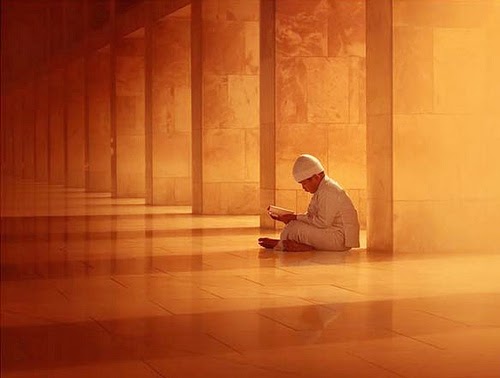We heard from 'Abd al-Rahman ibn Ghanam [died 78/697] as follows:
When Umar ibn al-Khattab, may God be pleased with him, accorded a peace to the Christians of Syria, we wrote to him as follows:
In the name of God, the Merciful and Compassionate. This is a letter to the servant of God Umar [ibn al-Khattab], Commander of the Faithful, from the Christians of such-and-such a city. When you came against us, we asked you for safe-conduct (aman) for ourselves, our descendants, our property, and the people of our community, and we undertook the following obligations toward you:
We shall not build, in our cities or in their neighborhood, new monasteries, Churches, convents, or monks' cells, nor shall we repair, by day or by night, such of them as fall in ruins or are situated in the quarters of the Muslims.
We shall keep our gates wide open for passersby and travelers. We shall give board and lodging to all Muslims who pass our way for three days.
We shall not give shelter in our churches or in our dwellings to any spy, nor bide him from the Muslims.
We shall not teach the Qur'an to our children.
We shall not manifest our religion publicly nor convert anyone to it. We shall not prevent any of our kin from entering Islam if they wish it.
We shall show respect toward the Muslims, and we shall rise from our seats when they wish to sit.
We shall not seek to resemble the Muslims by imitating any of their garments, the qalansuwa, the turban, footwear, or the parting of the hair. We shall not speak as they do, nor shall we adopt their kunyas.
We shall not mount on saddles, nor shall we gird swords nor bear any kind of arms nor carry them on our- persons.
We shall not engrave Arabic inscriptions on our seals.
We shall not sell fermented drinks.
We shall clip the fronts of our heads.
We shall always dress in the same way wherever we may be, and we shall bind the zunar round our waists
We shall not display our crosses or our books in the roads or markets of the Muslims. We shall use only clappers in our churches very softly. We shall not raise our voices when following our dead. We shall not show lights on any of the roads of the Muslims or in their markets. We shall not bury our dead near the Muslims.
We shall not take slaves who have been allotted to Muslims.
We shall not build houses overtopping the houses of the Muslims.
(When I brought the letter to Umar, may God be pleased with him, he added, "We shall not strike a Muslim.")
We accept these conditions for ourselves and for the people of our community, and in return we receive safe-conduct.
If we in any way violate these undertakings for which we ourselves stand surety, we forfeit our covenant [dhimma], and we become liable to the penalties for contumacy and sedition.
Umar ibn al-Khittab replied: Sign what they ask, but add two clauses and impose them in addition to those which they have undertaken. They are: "They shall not buy anyone made prisoner by the Muslims," and "Whoever strikes a Muslim with deliberate intent shall forfeit the protection of this pact."
μια απόπειρα επιστημονικής προσέγγισης της ανθρώπινης θρησκευτικότητας
an attempt for a scientific approach of human religiosity
"Sedulo curavi humanas actiones non ridere, non lugere, neque detestari, sed intelligere"
—Spinoza, Tractatus Politicus 1:4
⏳ ⌛ First post: October 30, 2008 / Πρώτη ανάρτηση: 30 Οκτωβρίου 2008
.
Saturday, April 5, 2014
An early Islamic "regulation"
against proselytism
in the Pact of Umar
(7th cent.?) /
Πρωτοϊσλαμικό "διάταγμα"
κατά του προσηλυτισμού
στο Σύμφωνο του Ουμάρ
(7ος αι.;)
against proselytism
in the Pact of Umar
(7th cent.?) /
Πρωτοϊσλαμικό "διάταγμα"
κατά του προσηλυτισμού
στο Σύμφωνο του Ουμάρ
(7ος αι.;)
Subscribe to:
Post Comments (Atom)

No comments:
Post a Comment